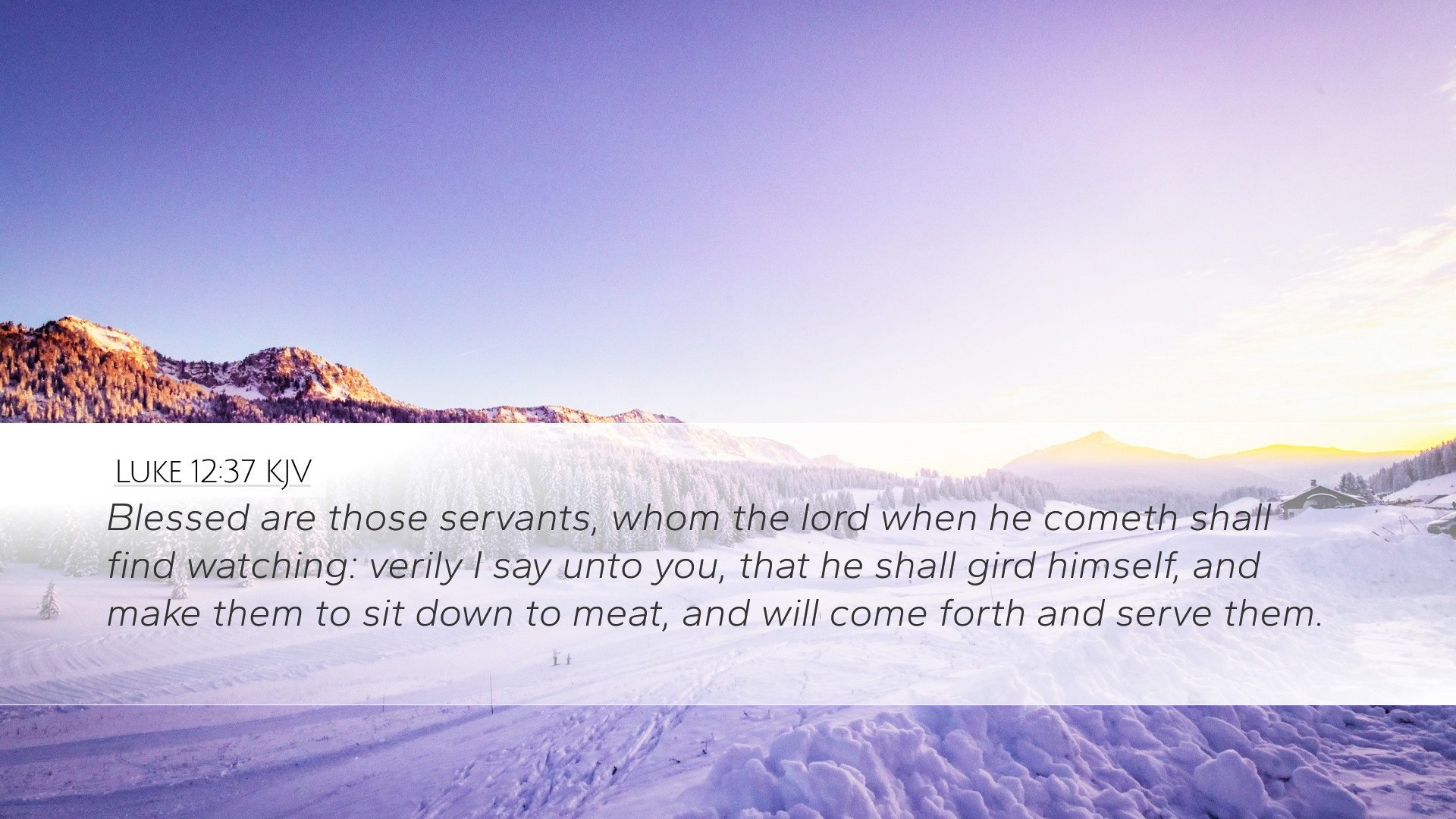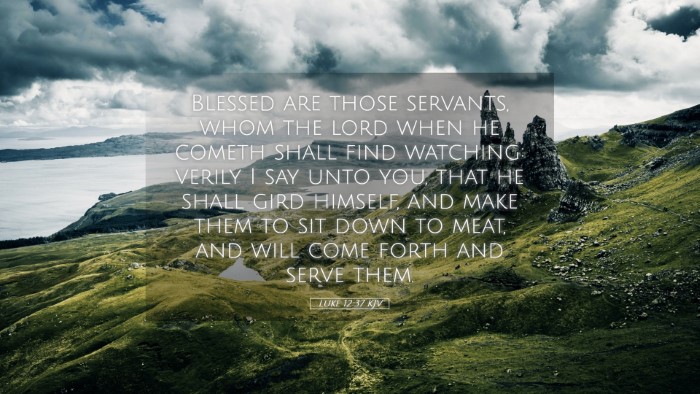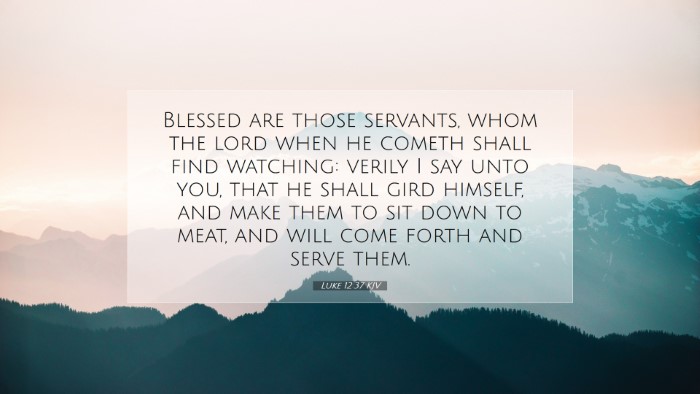Commentary on Luke 12:37
Luke 12:37 states: "Blessed are those servants, whom the lord when he cometh shall find watching: verily I say unto you, that he shall gird himself, and make them to sit down to meat, and will come forth and serve them." This verse encapsulates the theme of vigilance and readiness in the life of the believer, offering rich insights for understanding its implications.
Introduction
This passage is part of a larger discourse in which Jesus emphasizes the importance of being prepared for the kingdom of God. It is a call to mindfulness and active waiting, portraying the servants as those who are attentive to their master's return. Notably, the fulfillment of this expectation is bound to the eschatological return of Christ, a central theme echoed throughout the Gospels.
Theological Insights
Several public domain commentaries offer profound wisdom on this verse.
-
Matthew Henry notes the significant contrast between the duties of a servant and the privileges they enjoy. He emphasizes that the true blessing lies in the state of preparedness, stating, "They shall be ready, and it will be found that this readiness is a mark of their fidelity and love." He encourages readers to remain vigilant, highlighting that being 'watchful' is more than passive waiting—it's active engagement in the service of the Master.
-
Albert Barnes elaborates on the nature of the blessing bestowed upon those servants. He points out that their readiness is rewarded by the Master, who in a surprising act of humility, girds Himself to serve. Barnes writes, "This is a striking representation of the love of Christ for his people. He who is Lord of all, becomes their servant.” This theological insight enriches the understanding of Jesus' character and His approach to leadership, serving as a model for all Christian leaders.
-
Adam Clarke offers an interpretative amplification of the phrase "gird himself," which symbolizes readiness and service. He explains that the act of girding up one's loins was a common practice for both readiness and action in the ancient world. Clarke reflects, "He who has the greatest right to command will be found in the posture of servitude, indicating that humility and service are central to the Christian experience."
Practical Applications
The implications of being watchful extend to both personal piety and communal responsibility.
-
Personal Readiness: As believers, we are called to cultivate a life of active vigilance. This involves prayer, scripture study, and living out one’s faith in daily actions, always with a heart expectation of Christ’s return.
-
Community Engagement: The watching servant is not isolated but engaged in a community that collectively anticipates the return of Christ. This encourages believers to foster environments of mutual support and accountability.
-
Understanding Service: In a world often driven by self-interest, Jesus' model of service challenges the prevailing norms. His actions call for Christian leaders to embody servanthood, representing Christ’s love tangibly within their communities.
Conclusion
Luke 12:37 serves as a reminder that the essence of being a follower of Christ involves an active waiting, marked by fidelity, humility, and service. As echoed in the analyses of Matthew Henry, Albert Barnes, and Adam Clarke, the anticipation of Christ’s return should propel believers into a deeper commitment to their Master’s service while embracing the paradox of being served by Him. This verse encapsulates a profound truth: that in our readiness to serve, we are also prepared to receive His abundant grace and joy.


